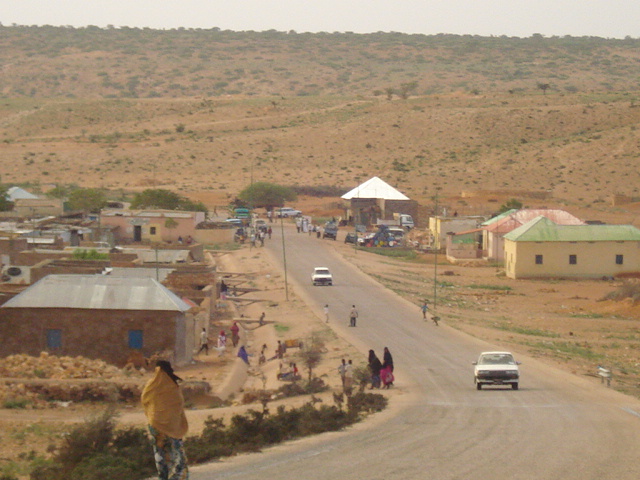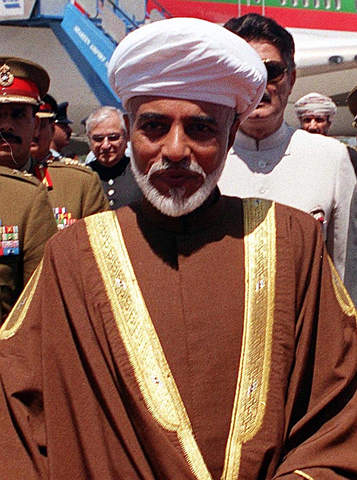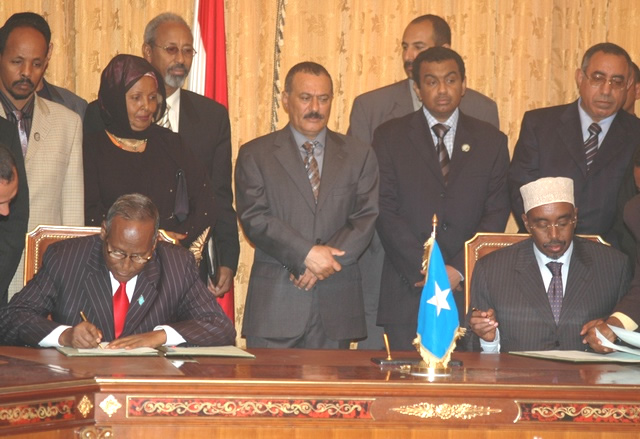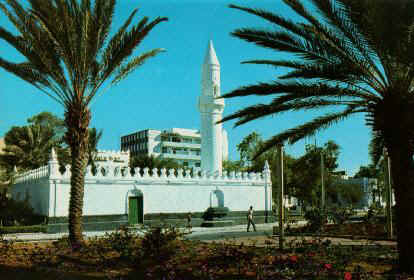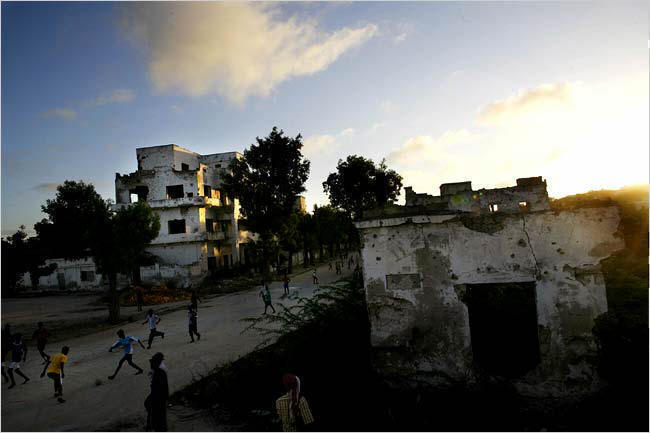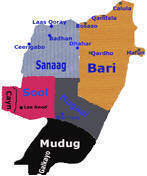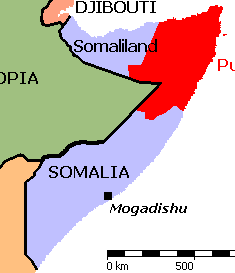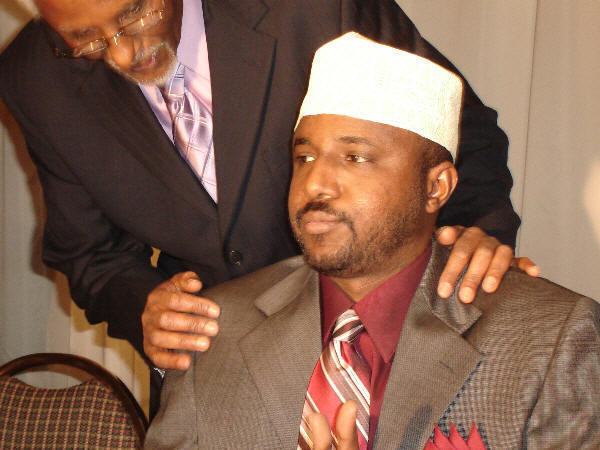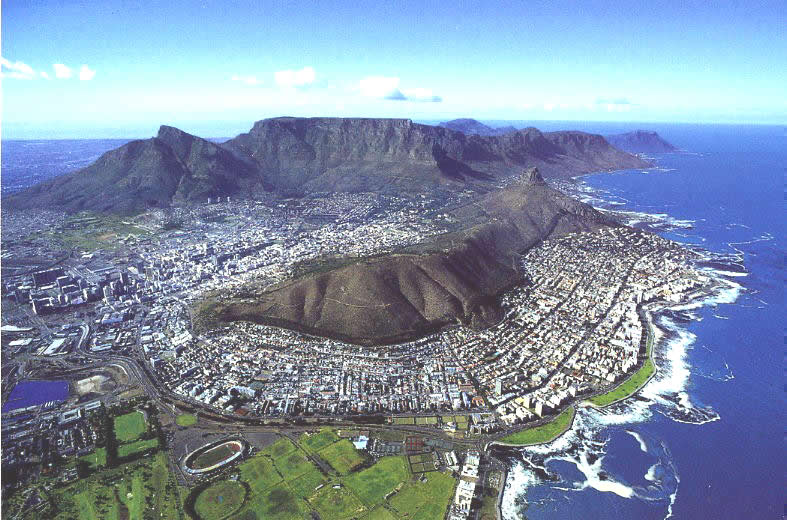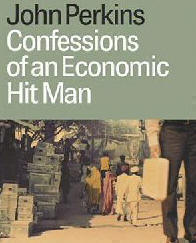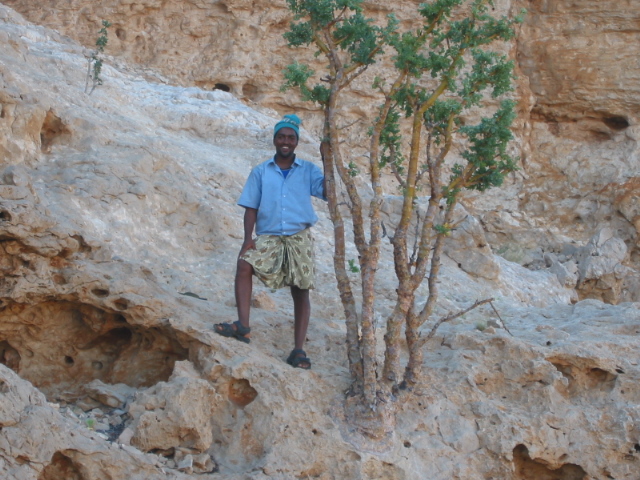|
Unnamed interim government officials accused of links with Al-Qaeda
BBC Monitoring Africa � Political
December 19, 2001
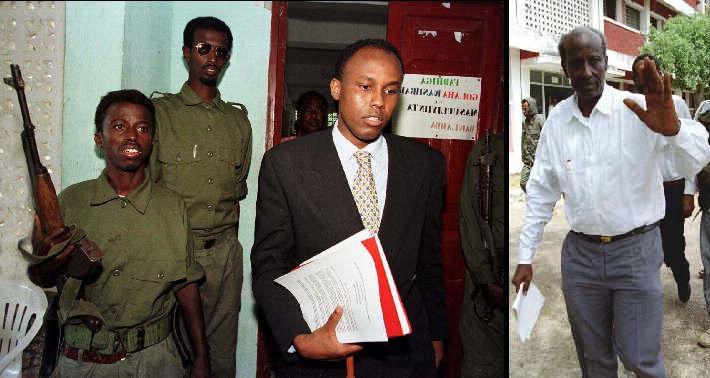
Husayn Aydid, who is one of the senior members of the SRRC [Somali Reconciliation and Reconstruction Council] currently in Addis Ababa, Ethiopia, has for the first time officially stated that Al-Qaeda and Al-Ittihad were present in Somalia, although he did not name names.
He said Gen [Muhammad Farah] Aydid and Abdullahi Yusuf [ex-president of Puntland] were the first men to fight the Al-Ittihad in Somalia.
He denied that his father had links had with Al-Ittihad and Al-Qa`idah.
�Ethiopia and Gen Aydid had a secret pact to cooperate in the fight against the terrorists. A day after Aydid died, Ethiopian troops entered Somalia`s Gedo Region, where the Al-Qaeda and Al-Ittihad organizations had bases. The Ethiopians fought them and destroyed them,� Aydid said.
�Ethiopian officials actually spoke to me about Somali terrorist groups while I was on a visit to Uganda,� Aydid said.
Husayn Aydid further went on to say that Al-Qaeda and Al-Ittihad and three other organizations which he did not name had been present in Somalia for many years. Al-Ittihad began its activities in the 60`s, he said.
�The SRRC has pledged to work with the Americans and the international community against terrorists,� he said, adding that the war on terrorism had existed even during the era of Siyad Barre, with the NSS [National Security Service] being in charge of this task.
�Not all politicians in the political organizations belong to Al-Ittihad and Al-Qaeda. However, there are some men who served in the Siyad Barre government and who are now the leaders of the Arta faction [interim government] who belong to these organizations,� Husayn Aydid said...
Source: Xog-Ogaal, Mogadishu, in Somali 19 Dec 01.
� 2001 The British Broadcasting Corporation. All Rights Reserved.
Aydid says Ethiopia has no �expansionist ambitions�
BBC Monitoring Service
September 08, 1998
Husayn Muhammad Farah Aydid, leader of the Somali National Alliance, has said: �Our differences with Ethiopia have been created by some Somali factions that are hostile to us.� In a statement to the Arabic newspaper `Al-Hayat`, Aydid said that Ethiopia had no �expansionist ambitions� and that both Ethiopia and Egypt �are exerting efforts to ease the pains of the Somali people and save them from the disaster of the current civil war�. On the issue of the emergence of new states in Somalia, such as Puntland and Jubaland, he said that they were the result of �a foreign conspiracy to destroy Somalia�. Regarding the issue of sheltering terrorist groups, Aydid said: �We do not have such people in Mogadishu or in any other part of Somalia.� The following is the text of a report by the London-based newspaper ` Al-Hayat` web site on 6th September:
Husayn Muhammad Farah Aydid, leader of the Somali National Alliance has stated that no terrorist groups, including Usamah Bin Ladin`s, have been allowed to come to Somalia and that the situation in the region`s countries is not better than that of Somalia. In a statement to `Al-Hayat`in Addis Ababa, Aydid said that Ethiopia should understand this situation and reconsider its policy on Somalia, pointing out that Ethiopian forces have crossed Somali border to chase the Somali Islamic Union forces, which were accused by Addis Ababa of carrying out bombing operations in the capital and other Ethiopian cities.
Aydid said: �Somalia has been a victim of the plots of regional and international forces, which are trying to impose their trusteeship on Somalia and use the warring Somali factions.� He said that the emergence of new states like Jubaland and Puntland is a foreign conspiracy to destroy Somalia, appealing to Ethiopia, Kenya and Djibouti to help Somalia reunite itself.
He also said: �The absence of security and stability in Somalia has encouraged every tribe to rule its territory, but that the Somaliland experiment is the best evidence that such secessions will fail in a country which has one language and one religion. Although the civil war in Somalia has created hatred among the Somali people, everybody dreams of greater Somalia and that all these states will vanish when a central government is established in Mogadishu.�
Regarding smuggling, the plundering of the fish wealth, and the dumping of waste material on the Somali beaches, Aydid said: �Somalia is currently suffering more from the absence of security and stability, but we are trying to restore what has been plundered and smuggled outside the country. Smuggling was carried out easily because of our inability to protect our borders.�
Aydid blamed some factions for plundering the country`s wealth and dumping of the waste material. He said: �This will destroy the environment in Somalia and the neighbouring countries. We hold all the conspirators responsible for the negative results of these actions and they will be punished after the establishment of a united state in Somalia.�
Aydid also said: �Some neighbouring countries believe that the fragmentation of Somalia will be in their interest, but the reverse is true. The day of punishment is not very far. We will punish the foreign forces, which have created the volatile situation in Somalia and we hope that those who are interested in Somalia will help it honestly. Everybody knows that hundreds of millions [currency not specified] have been spent by foreign parties to support the Somali people, but to no avail. What we actually want is a moral support. Somalia has very rich natural resources and all that it lacks is security and stability in the region.�
Aydid then denied reports that Somalia has become a shelter for assassination attempt on the life of Egyptian President Husni Mubarak and Usamah Bin Ladin. He said: �We do not have such people in Mogadishu or in any other part of Somalia. This is a campaign by some foreign countries to show that the region has no security and stability.�
Asked about accusing Ethiopia of having sent its forces across the Somali border to chase the Islamic Union forces, he said: �This is not an accusation. It is a reality. It has happened in the past and we will not ignore it any more. I raised this issue with the Ethiopian officials and I told them that we would not allow it any more. Ethiopia should understand the situation. It, as well as the rest of the neighbouring countries, will benefit from security and stability in the region.�
Aydid added: �What Ethiopia has done is indecent and has annoyed the Somali people, particularly those who view Ethiopia as their second homeland. Djibouti and Kenya are suffering from problems similar to those of Ethiopia. Yet, both countries have asked for coordination with us to overcome the crisis. We will not allow any country to exploit Somalia. The situation of the region`s countries is not better than Somalia`s. These countries are suffering from conflicts and crises. Ethiopia, Somalia`s closest neighbour, is harmed by the situation in Sudan and Eritrea and I think it has no ability to put pressure on Somalia. So, it is better for it to reconsider its calculations and restore normal relations with Somalia.�
Aydid said: �Our differences with Ethiopia have been created by some Somali factions that are hostile to us. They have succeeded in creating a sedition between us and Ethiopia; but we have put an end to these differences after I held talks with Ethiopian Prime Minister Meles Zenawi, Ethiopian Foreign Minister Seyoum Mesfin and other Ethiopian officials, with whom we reached positive solutions. I do not believe Ethiopia has any expansionist ambitions. It is facing grave problems with its neighbours. Ethiopia has been asked by Inter-Governmental Authority on Development, IGAD, and the OAU [Organization for the African Unity] with following up the Somali file [sentence as received].�
Asked whether there is an Ethiopian-Egyptian rivalry in Somalia, Aydid said: �There is a difference between the political positions of Addis Ababa and Cairo, but both countries are exerting efforts to ease the pains of the Somali people and save them from the disaster of the current civil war. If there are differences, then they are among the Somalis themselves. The withdrawal of some Somali faction leaders from the Cairo meeting after the signing of all the provisions of the agreement came as a shock and worsened the situation among the Somali factions. The ball is now in the court of the Somalis and it is time for them to draw up their plans quickly, work seriously and hold a national reconciliation conference.�
Aydid also said: �The Cairo agreement stresses fair distribution of posts and leaves the implementation to the Baydhabo [Baidoa] conference, which was to convene one month after the signing of the Cairo agreement. The agreement, however, does not tackle the issue of how the posts should be distributed and does not back any party against any other party. Egypt`s role has been confined to mediation, which has never been exceeded.� Aydid said that Somalia maintains no relations with Israel. He added: �The Somalis refuse to maintain any relations with the Zionist entity and this principle will not change.�
Source: `Al-Hayat` web site, London, in Arabic 6 Sep 98
� 1998 The British Broadcasting Corporation [date of publication]. All Rights Reserved.
Aydid says he is ready for talks with Ethiopia
BBC Monitoring Service
July 09, 1999
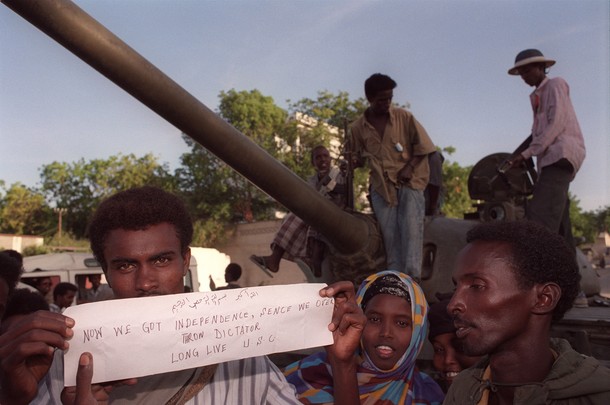
Somali civilian show their support to a group of Somali United Congress (USC) rebels, armed on a tank, January 30, 1991 in Mogadishu, Somalia. Rebel troops of the Somali United Congress (USC) took control of Mogadishu, after a three week long war with Government troops.
Somali faction leader Husayn Aydid has said he is waiting for Ethiopia to reply to Libya`s offer of mediation and is willing to meet Ethiopian Prime Minister Meles Zenawi without any preconditions to end the dispute. �The ball is in his court now,� he said. Speaking about the deterioration of relations with Ethiopia, he said Ethiopia was unhappy with his relations with other countries, including Egypt and Libya, and he accused Ethiopia of being behind an attempt to assassinate him last year. The following is the text of the interview with Husayn Aydid by Khalid Mahmud in Cairo; published by London-based newspaper `Al-Sharq al-Awsat` on 5th July; subheadings inserted editorially:
[Mahmud] Let us start by talking about reports that your wife fell into the hands of the Ethiopian forces that invaded Baydhabo [Baidoa] last month before she could escape. What really happened and where was she?
Ethiopian capture of Baidoa
[Aydid] As you know, Baydhabo was a strategic town for our military forces, lying around 200 km from the capital Mogadishu. I left the town for Tripoli on Friday morning to meet (Libyan revolution leader) Col Mu`ammar al-Qadhafi at his invitation. The Ethiopian forces raided the town (possibly) to assassinate me. I was the target, not Baydhabo. You can hear in Addis Ababa people saying that Somalia will submit to us if we eliminate Aydid. This is a wrong and unacceptable logic. But Ethiopia has a permanent plan to partition Somalia into statelets. All the practices of the various regimes that ruled Ethiopia during the past years make this quite clear.
Ethiopia thought that it had an opportunity to occupy territory and build a port on the Red Sea or Indian Ocean coast. This is a vital and strategic area for it, particularly as it is a landlocked country (with no ports). The Ethiopians thought that Somalia was weak and therefore attacked Baydhabo suddenly but we knew of this because we monitored the Ethiopian forces` major and daily moves near our common borders days before the invasion.
As you know, five million Somalis live in the Ogaden region, which was occupied by British colonialism and annexed to Ethiopia. These people are loyal to me and they can undermine security and stability in Addis Ababa if we ask them to do so. But we do not have ambitions in Ethiopia and, unlike it, are not thinking of occupying its territories. Yet I assert to you that we are working to restore our control of the Somali town of Baydhabo in the very near future.
[Q] Excuse me, let me go back again to the tale of your wife`s escape?
[A] Our local forces withdrew when the Ethiopian forces entered the town due to the big differences in armament and number of fighters. But we stood fast for a total of nine hours and around 100 Somali fighters were killed or wounded in this Ethiopian aggression.
My wife was in the town when the Ethiopians entered it at 0500 [local time] but they could not find her because the Somalis protected her and did not divulge any information about her despite the Ethiopian forces`continued search with a view to arresting her.
My wife succeeded in leaving the town with some of our forces and she even helped treat some of the wounded because she used to be a nurse who worked with my father (the late Gen Muhammad Farah Aydid).
I believe that she fought well because she is a fighter by nature and speaks the Swahili and Somali languages very fluently. As they say, she is not just a housewife.
[Q] When was the last time you saw her and have you spoken to her on the telephone recently?
[A] I said goodbye to her three weeks ago in Baydhabo. She was talking to me on the telephone two hours before you came here (Monday evening) [date not specified] and asking me to return quickly and liberate Baydhabo. We have too much work to do there.
Libyan mediation: the ball is in Ethiopia`s court
[Q] I learned that Libyan leader Mu`ammar al-Qadhafi offered during your recent meeting with him in Tripoli to mediate and end your dispute with Ethiopia. Is this true and what point has this mediation reached now?
[A] Col Qadhafi invited me to meet him. We trust this man and respect his views and efforts to resolve African conflicts. We appreciate his desire to solve the current Somali crisis. I went to him in Tripoli where he had already met Ethiopian Prime Minister [Meles] Zenawi a few days before my arrival. Qadhafi told me that Zenawi had certain complaints against me. I explained our view to the colonel. He asked me if I was willing to hold a round of talks with Zenawi to end the dispute and I agreed immediately.
Qadhafi told me that he told Zenawi that Aydid was a man who could be trusted and who implemented and complied with whatever was agreed on. Thus I accepted the Libyan initiative. We are supposed to be waiting for Zenawi`s response to hold the meeting.
[Q] Did you have preconditions for holding this meeting?
[A] No. On the contrary, I welcomed any meeting with Zenawi but I asked Col Qadhafi to participate with us in it. We need a third party as a witness to any agreement we sign with Ethiopia. We will also brief all our Arab, African and Muslim partners on it.
[Q] Was a date set for such a tripartite meeting? Did you agree on the venue?
[A] There will of course be no problem in having Libya host the meeting. But we did not agree on a specific date or timetable for it. As I said, we are waiting for the Ethiopian prime minister`s answer and I believe that the ball is in his court now.
Reasons for deterioration in relations with Ethiopia
[Q] It is quite strange for your relations with Ethiopia to deteriorate, specially as you met Zenawi in Addis Ababa last year. What did happen exactly?
[A] It is not a question of personal differences. I had reservations about the man (Zenawi) from the beginning, his pragmatic policies, and his view of the solution for the Somali crisis. I went to Addis Ababa only after the Cairo agreement was signed. I sat with him for one hour and specifically asked him why he opposed that agreement that was signed by the majority of the Somali faction leaders.
I told him that the existence of a strong and united Somalia would be of great benefit for Ethiopia and that we were only asking you to stop interfering in our internal affairs or trying to impose certain names from the remnants of the Sodere agreement group. I expressed to him our total willingness to remove all his apprehensions about me.
[Q] What was the Ethiopian prime minister`s reply?
[A] He complained to me about the Islamic alliance`s practices on the Ethiopian-Somali border areas, specifically this alliance`s intermittent actions across the Giraud [as transliterated] bridge. In return, I pledged to him to eliminate the causes of his complaints and help him maintain security in the area.
He then spoke to me about the future of Abdullah Yusuf who appointed himself president of Puntland state. I told him: This minor statelet has no future and could be easily eliminated. If you are concerned about Yusuf`s fate, we can include him in the Somali National Alliance and try to convince the others to deal with him for the sake of Somalia`s interest.
[Q] What happened then to make things turn into what they are now?
[A] Zenawi did not implement any of his obligations to us. On the contrary, he sought to assassinate most of those who signed the Cairo agreement, including [Somali faction leaders] Ali Mahdi [Muhammad] and Umar Haji. I myself did not escape the Ethiopian attempts to assassinate and liquidate me physically.
[Q] When did they try to assassinate you? How did you know that Ethiopia was the party that planned it?
[A] This happened before the end of last April when I was returning from Mogadishu to Baydhabo. A land mine exploded under a vehicle escorting me, killing 18 of my best bodyguards. We then found out that the Ethiopians had planted seven other land mines to blow up my vehicle completely.
I saw the limbs of the dead men who were split into two halves in a very ugly way.
[Q] But how did you know that the Ethiopians planted the mines?
[A] It was quite easy [to tell] because the mines were planted recently in areas neighbouring a minefield that dates back to the start of the civil war in Somalia and the presence of the UN blue beret forces in 1993.
Ethiopia`s objections to Somalia`s relations with Egypt
[Q] But you have not specified Ethiopia`s demands for a dialogue with you in the past?
[A] I asked the Ethiopian prime minister the same question when I met him in Addis Ababa last August. He told me: We want security on our borders and for Somalia to be the friend of and first ally of Ethiopia, and not of Egypt, Libya or Yemen.
I said to him: We have good relations with these countries. They have not harmed us but, on the contrary, helped us solve our problems. Our relations with them are not directed against Ethiopia. If you have problems with them, then I - as a brother, neighbour and friend - can help you there.
[Q] I understood from your remarks that there are Ethiopian reservations about your relations, specifically with Egypt. Why is that?
[A] Zenawi believes that Egyptian-Somali relations are targeting him and that they will reduce the importance of his regional role in the Horn of Africa. He has delusions about the Nile River water but we are not part of that.
Egypt is a major country and has supported us strongly. Our contacts with it are proceeding excellently. It is still playing an important role in solving the Somali crisis and encouraging the Somalis to form a government of national unity that will restore stability and security to Somalia.
Egypt does not have ambitions in Somalia, unlike Ethiopia which thinks it is a strong country capable of imposing its political will on all its neighbouring countries.
We will not sacrifice our relations with Egypt to appease Zenawi. We alone decide where our interest lies and who are our friends and enemies.
[Q] Zenawi was your late father`s friend. Why did you fail to maintain good relations with him?
[A] Zenawi betrayed my father even though we gave him much help. You do not deal emotionally in politics but according to common interests. This man cares only about his personal interest and not the interests of others.
On our part, we implemented all our obligations but he did not comply with what was required of him. On the contrary, he is still opposed to the Cairo agreement because he wants to impose his will on the Somali people and we will not accept this under any circumstances whatever.
We fought Siyad Barreh because of his dictatorial regime and we will not let anyone set himself up as the guardian of the entire Somali people. It is said: Tell me who your friends or neighbours are and I will tell you who you are.
We are not receiving military aid from Eritrea
[Q] Ethiopia is accusing you of helping Eritrea by opening a second fighting front in the Oromo region. What is your response?
[A] These are regrettably false accusations used by Ethiopia as a cover for its invasion of Somali territory and its advance 200 km to attack Baydhabo.
[Q] Are you receiving military aid or weapons from Eritrea?
[A] Our relations with Eritrea are good but we are not a party in its current conflict with Ethiopia. We do not receive any weapons or military aid from it. We rely on our own resources. Our fighters are volunteers and not paid and we are fighting only to reunify Somalia.
Obstacles preventing establishment of central government
[Q] When you came to Cairo last year, you gave the impression that you would end the tragic situation and establish the central government as soon as you had returned. But nothing of the sort was achieved. Why did you fail?
[A] No, we have not failed yet. As I explained to you, there are obstacles put up by Ethiopia. On our part, we are working sincerely and strenuously to restore Somalia`s Arab and African position. You might know that we will reopen the capital`s airport next month in the presence of Arab, regional and international organizations as a symbol of our control of most Somali territories.
We are still talking to the remnants of the Sodere group to convince them to join our National Alliance in order to serve the Somali people and their right to a free and dignified life.
[Q] Are you still demanding that Somalia`s permanent seat at the Arab League should be given to your national faction? Did you discuss this recently with Dr Ismat Abd al-Majid?
[A] No. I did not touch on this issue when I met the Arab League secretary-general. I did raise it last year and did in fact demand the seat and the appointment of an ambassador because we represented the majority of the Somali people. But we did not get a reply because of the nature of the Arab League`s charter.
The present ambassador (Abdullah Husayn) belongs to former dictator Siyad Barreh`s regime and represents only himself. He took a bad stand towards the Cairo agreement when he opposed it and even called on the Arab countries not to help find the 4.5m dollars to cover the cost of the national reconciliation conference, which was supposed to be held in Baydhabo and postponed several times.
He is collaborating with the Puntland (Somaliland) [as published] statelet. In my view, the ambassador is a difficult case. I wrote last year to Egyptian Foreign Minister Amr Musa and Arab League Secretary-General Dr Abd al-Majid and drew their attention to this ambassador`s irresponsible stands.
According to my information, he was summoned and warned not to repeat what he did or else he would be abandoned by them.
It is quite surprising to see Somalia`s ambassadors come to meet me at the airports of countries they are accredited to when I visit them, with the exception of this man. This is quite a bizarre situation, which we regret.
Source: `Al-Sharq al-Awsat`, London, in Arabic 5 Jul 99
� 1999 The British Broadcasting Corporation [date of publication]. All Rights Reserved.
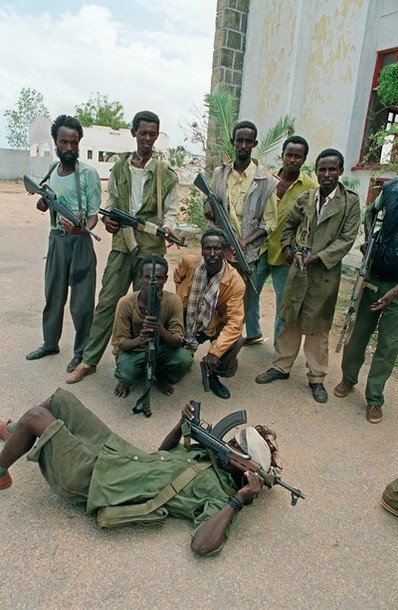
Clan fighters loyal to the United Somali Congress (USC) of warlords General Mohamed Farah Aidid, pose May 15, 1992 in front of a building in Somalia`s southern port of Kismayu. |



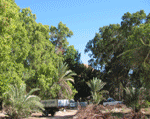

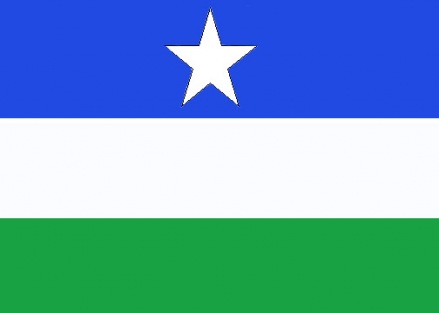
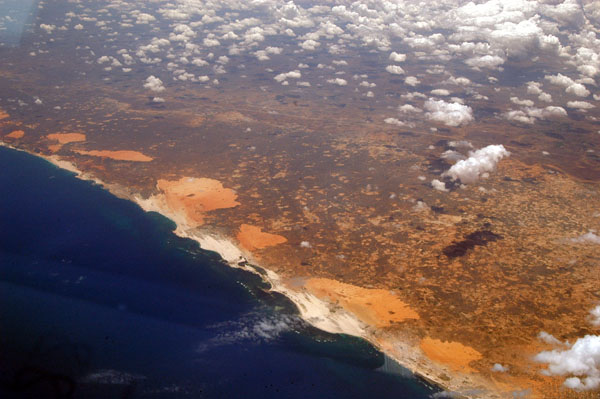
.jpg)
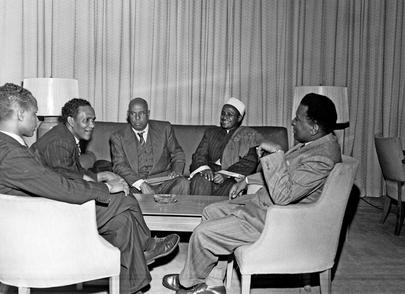
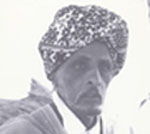


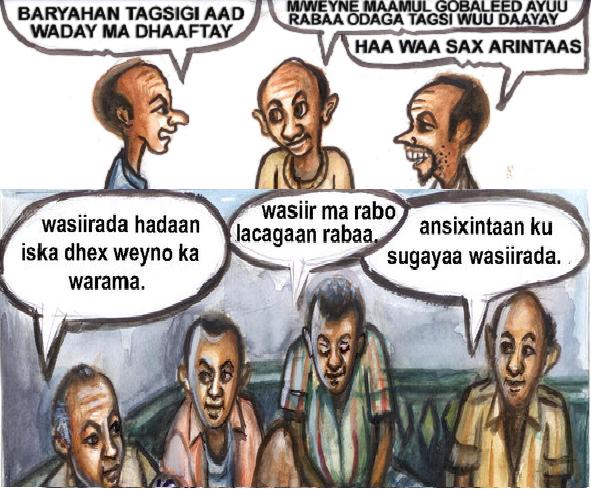
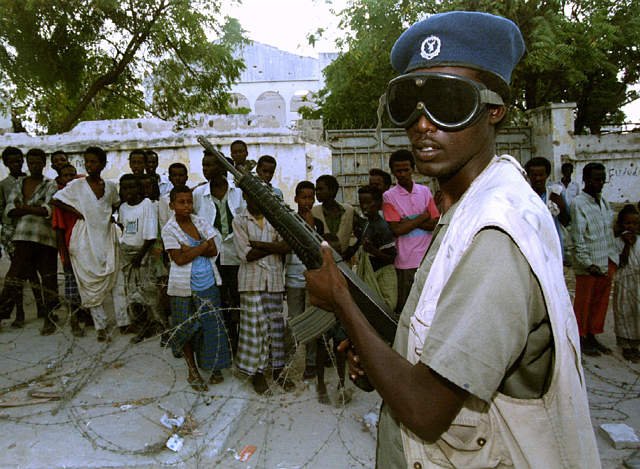


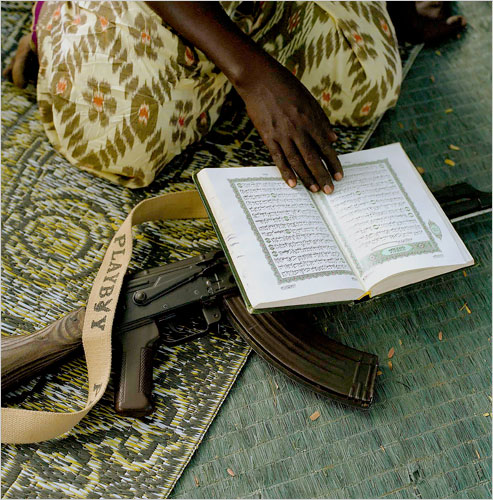

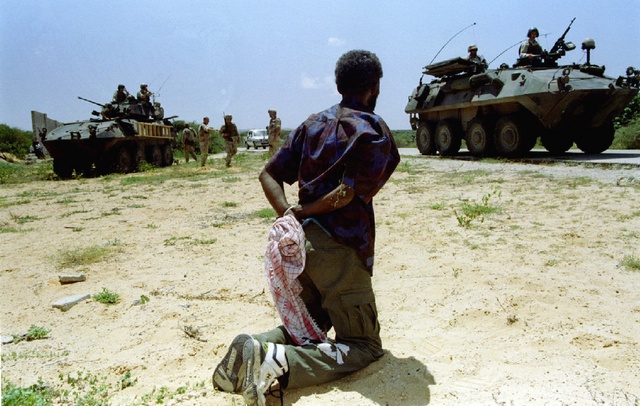
.jpg)




